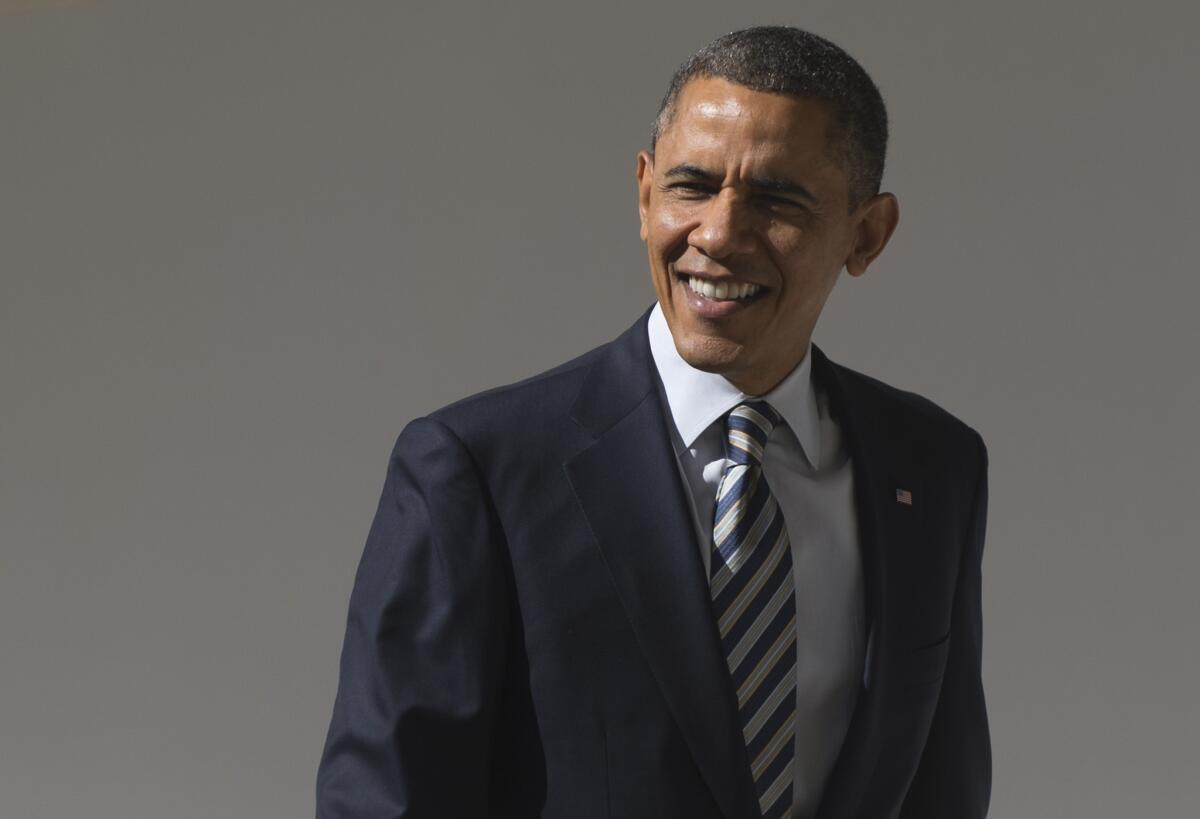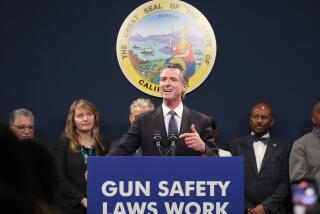State of the Union: The not so bully pulpit

- Share via
Theodore Roosevelt, America’s 26th president, reveled in the platform the job gave him to comment on all matters great and small: “I have got such a bully pulpit!” he declared.
Eighteen presidents and nearly a century later, President Obama repeatedly has discovered the pulpit’s limitations.
In today’s highly polarized atmosphere, Obama can create opposition to an idea simply by embracing it as his own. That reality constrains how he approaches tonight’s State of the Union speech and provides a simple guide for viewers: If you hear the president trumpet an idea as his own, that’s a good indication that he’s not expecting it to pass through Congress this year.
The latest evidence comes from a Washington Post survey.
When asked “Do you favor or oppose creating a way for illegal immigrants already here to become citizens if they meet certain requirements?” 70% of people surveyed said yes, including 60% of people who identified themselves as Republicans.
QUIZ: How much do you know about the State of the Union?
Then the pollsters added three words to the question, asking this: “Obama has proposed creating a way for illegal immigrants already here to become citizens if they meet certain requirements. Do you favor or oppose this? Republican support plummeted to 39%. The percentage of Republicans who said they were “strongly opposed” rose from 25% when Obama’s name was missing to 40% when his name was added.
Democratic partisans shouldn’t gloat. Similar polarization appeared in Democratic attitudes during George W. Bush’s presidency. Indeed, Teddy Roosevelt notwithstanding, political scientists repeatedly have shown that presidents have very little ability to shift the attitudes of members of the opposition party. Ronald Reagan, for example, famed for his communication skills, didn’t convert liberals to his cause.
What a president can do is rally his supporters to follow him by making an issue more prominent. Sometimes, he can also bring along those on the fence. The same poll showed evidence of how that can work.
When asked if they supported a ban on assault weapons, 45% of those surveyed said yes. When asked the same question but with Obama’s name attached to the proposal, support rose to 54%.
PHOTOS: President Obama’s second inauguration
That’s because a significant number of Democrats and independents don’t have a strongly held view on the ban and were willing to support it once they knew Obama was a supporter. Republican views didn’t shift because most Republicans already had strongly negative views about weapons bans.
That polarization means that with a divided government, in which no legislation passes without at least some support in each party, Obama can get his priorities through Congress in one of two ways.
He can “lead from behind,” cheering on legislative action on a proposal but being careful not to identify it too prominently as his. Or he can lay out his own plan, rally his supporters, and see if pressure from the public can force Republicans to bend.
Obama has adopted the former strategy for immigration reform, taking advantage of Republican worries that they have alienated large numbers of Latino voters. So far, the strategy appears to be working. Momentum has built in Congress for comprehensive reform along the lines that Obama seeks.
PHOTOS: President Obama’s past
He’s adopted the more confrontational strategy for the budget, particularly on the issue of tax increases on wealthy Americans. Aides say Obama feels the public rendered a clear verdict in last November’s election.
That strategy, too, has shown some results, as Obama won a tax increase on top earners. That victory came about because Congress faced a deadline for across-the-board tax increases that Republicans could not stomach. In the absence of another similarly compelling deadline, White House officials doubt Republicans will agree to any new compromises with them on budget issues this year.
In tonight’s speech, Obama probably will offer more specifics about taxes and spending than about immigration, a strong indication that he expects only the latter to pass.
Follow Politics Now on Twitter and Facebook
Twitter: @davidlauter
More to Read
Get the L.A. Times Politics newsletter
Deeply reported insights into legislation, politics and policy from Sacramento, Washington and beyond. In your inbox twice per week.
You may occasionally receive promotional content from the Los Angeles Times.











